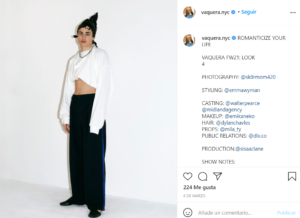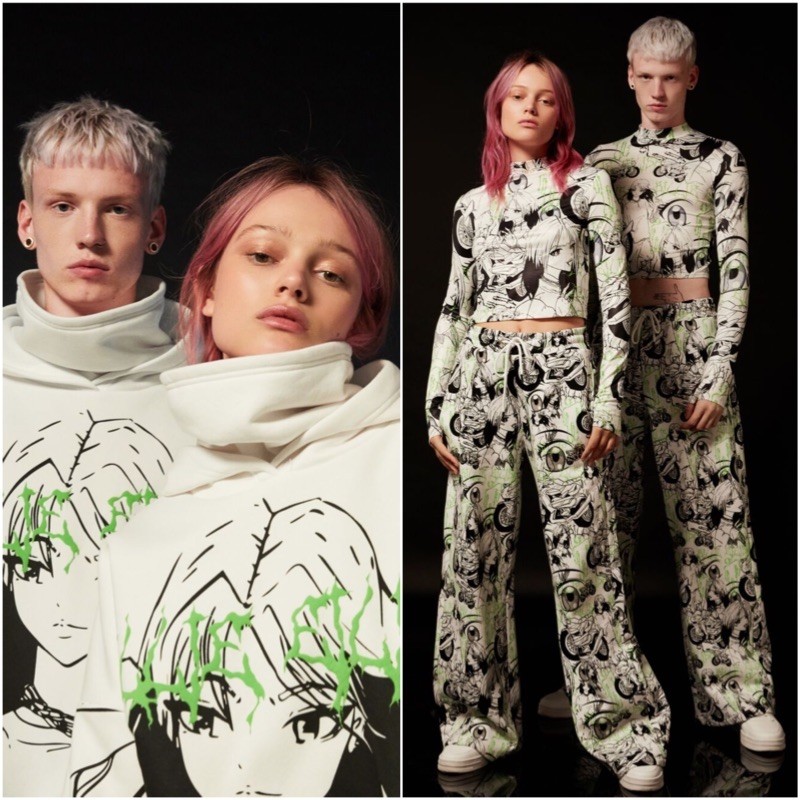The young people, in special, The Millennials and Generation Z are moving away from the ‘supposed normality’ of adamant cisgender conformity and are boldly exploring alternatives (Dimock, 2018), being able in this way, and feeling supported by the great movement, become the person that they really are.
Fashion is a way of expressing your identity, so as long as identities are important, fashion will continue to be. However, the link between fashion and identity begins to become really interesting in the case of people who do not clearly fall into a culturally recognized identity, such as transgender, gender queer, agender… (Freiwald, 2001). Finally, fashion has achieved something that nothing and no one had accomplished, which is to ensure that the minorities that once lived in the shadows now attract the light of the spotlights.

Each year’s official show calendar is divided into men’s and women’s fashion weeks, the fashion stores have a section for men and a section for women, the menus of their websites, the same… Nevertheles, genderless fashion is no longer in the background or hidden, it is even becoming the mainstream spotlight for fashion brands (Chapeck, 2017). It was a necessary step for all those people who dress in the clothes they like without looking at gender, as behind this category (genderless) there is a whole new system of thought, a set of ideas and values that it represents.
Akdemir (2018) declare that fashion revolutionaries do not seek to feminize men or make women masculine, simply remove labels, and it means gender fluidity in fashion. In addition, There are many fashion designers who support this movement and emphasize that they do not make unisex or androgynous clothing, but clothing without gender, it. For instance, Vaquera, Ludovic de Saint Sernin or Petra von Kant.

Also, major brands such as some of Inditex such as Zara or Bershka, or H&M even Guess are launching lines aimed at all genres (Chapeck, 2017).

However, currently all industries have been economically affected by the pandemic, according to The Business of Fashion report with McKinsey & Company they have published on the effects of COVID-19 on the economy of the fashion industry, it will recover in the third quarter of 2022 as long as online sales perform as well, if not better, than since the pandemic occurred (Amed et. al., 2020). This data is perhaps relevant to understand that it is risky for fashion companies to innovate today, but hopefully over time there will be significant large-scale changes.